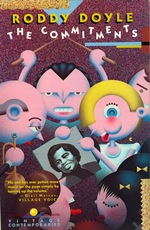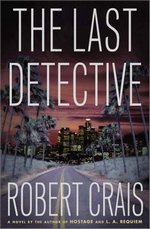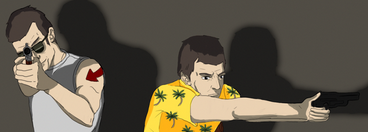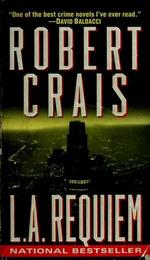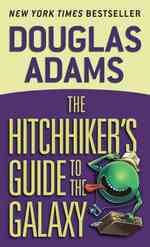 The Hitchhiker’s Guide to the Galaxy
The Hitchhiker’s Guide to the Galaxy
by Douglas Adams
Series: The Hitchhiker’s Guide to the Galaxy Trilogy, #1
Mass Market Paperback, 216 pg.
Del Rey Books, 1995 (originally, 1979)
Read: January 14 – 15, 2015

If I’m not really careful, this will be the longest thing I ever post here. Let’s see how much restraint I have, shall we?
I think I read The Hitchhiker’s Guide to the Galaxy for the first time in 1987 (maybe 1988), and have read it countless times since then. I quote it all the time (frequently unconsciously and unintentionally) — I think I’ve even plagiarized it a couple of times (really unintentionally). The only reason that my PIN isn’t 4242 is because it seems to be too obvious. I love this book. Rereading it is still fun. Even though I have paragraphs committed to memory, I can hear large portions of it in the voices of the original radio play actors, still the act of reading it is enjoyable, it’s like coming home after a long day at work.
The fixation on digital watches seems so quaint. It starts in the first paragraph and doesn’t really let up until late in the book. I so wish Adams was with us to see what he’d do with our smartphone addictions.
So much of what Adams does here has been repeated by others that he inspired, it’s tough to see some of it as fresh anymore, but he didn’t so much break the mold as ignored it and accidentally created a new one.
The Vogons are fantastic creatures. From the description of their evolutionary process — abandoned though it may be — their anatomy, their inherent meanness, to the commentary on civil servants. Just a fun alien race to read about. But is Adams satisfied with that? No. He adds the monstrosity that is their poetry (and the swipe at the old schoolmate) and they near perfection.
The Babel fish, what can you say about that? They are inspired. They take care of a problem that every space-bound Science Fiction story has to deal with in a way that’s actually more believable than technology-based solutions (Doctor Who does the same thing a bit less convolutedly, but less amusingly, too).
The Python-esque dialogue of the representatives of the Amalgamated Union of Philosophers, Sages, Luminaries and Other Thinking Persons. Is just a delight and picks up what could be a lull in the story.
Another little bonus that’s easy to over look is cop ex machina appearance of the Blagulon Kappa police officers — they’re a great commentary on law enforcement, notions of masculinity, depictions of both in the media — and how all three were undergoing a change at the time.
Strip away all the laughs, the jokes, the satire, the general zaniness and you still have a decent story — not a great one, mind you, but a decent one. There’s some good character work here, too — but it’s hard to see. The reactions of both Arthur and Trillian to the destruction of Earth are a lot deeper and real then Adams needed to make them. Unfortunately, that’s about all the good that Adams does with Trillian. Arthur still has some good treatment in his future.
It’s not perfect, don’t get me wrong — there are some problems with the characters (see Trillian), it being an adaptation of the radio program makes things a bit episodic with clunky transitions, and other hiccups (like the multiple introductions of Ford Prefect). Still, the highs are higher than the lows are low and there are a lot more of them.
- I stopped taking notes of particular lines on page 5 this time, there are just too many to count, and far too many to list. Still, there are a few I have to note:
- “Time is an illusion. Lunchtime doubly so.”
- “This must be Thursday. . . I never could get the hang of Thursdays.”
- “You’d better be prepared for the jump into hyperspace. It’s unpleasantly like being drunk.”
“What’s so unpleasant about being drunk?”
“You ask a glass of water.”
(I’m not sure why, but this has always made me chuckle, if not actually laugh out loud. It’s just never not funny) - “He had found a Nutri-Matic machine which had provided im with a plastic cup filled with a liquid that was almost, but not quite, entirely unlike tea.”
- “In those days spirits were brave, the stakes were high, men were real men, women were real women and small furry creatures from Alpha Centauri were real small furry creatures from Alpha Centuari. And all dared to brave unknown terrors, to do mighty deeds, to boldly split infinitives that no man had split before . . . “
- “Look,” said Arthur, “would it save you a lot of time if I just gave up and went mad now?”
- Slartibartfast
(okay, not technically a line, but that name…c’mon)
It’s a classic, you just need to read it if you haven’t. If you have, is it time for a re-read?
—–

(only because I don’t have time to make a 6-star graphic) 6 out of 5 stars, easy.







